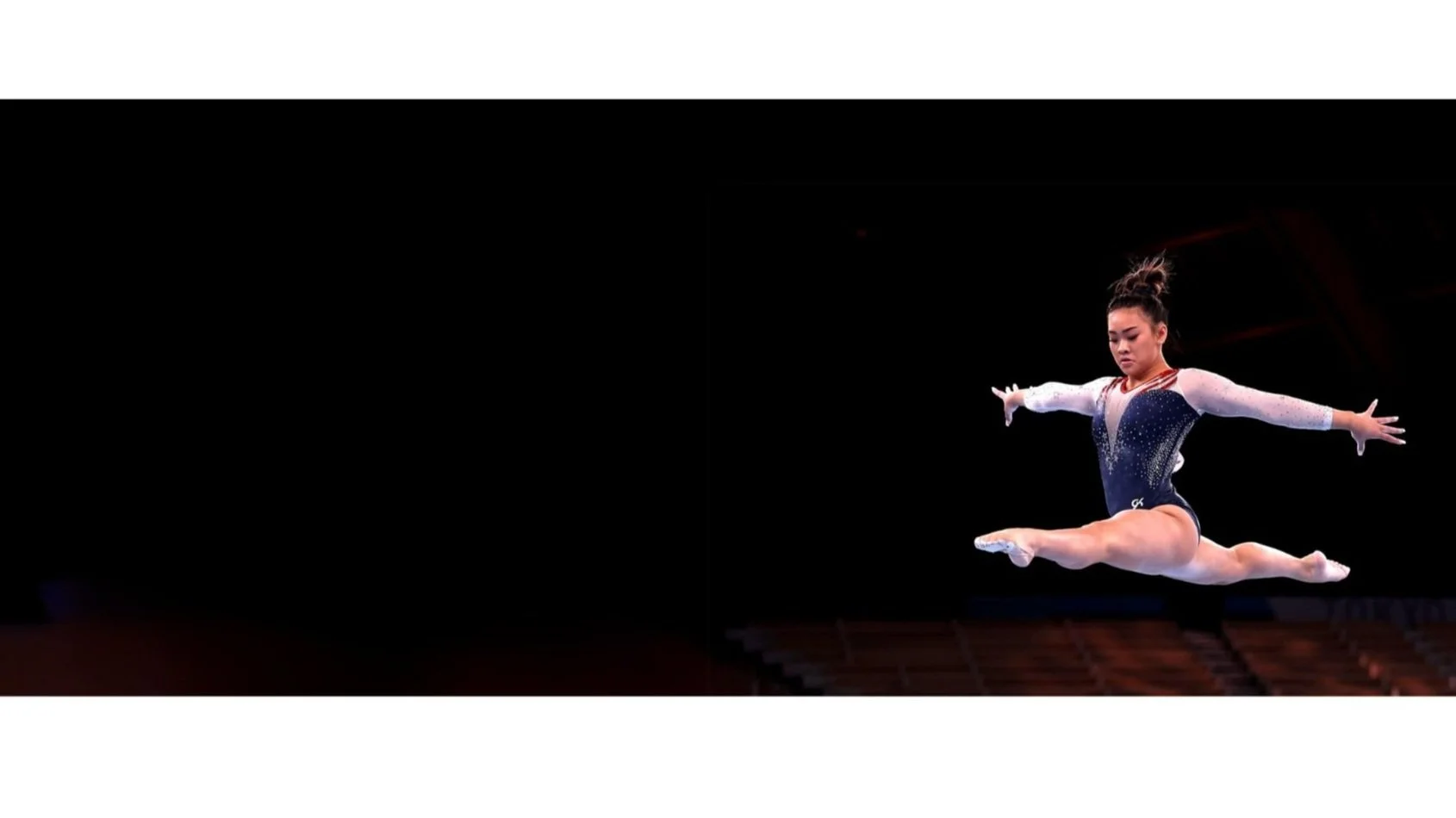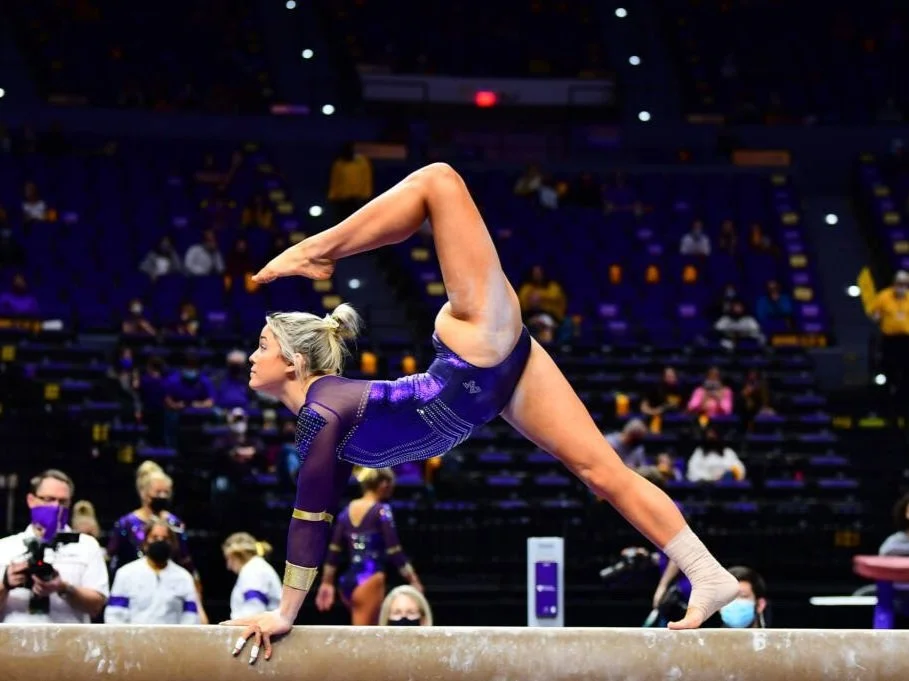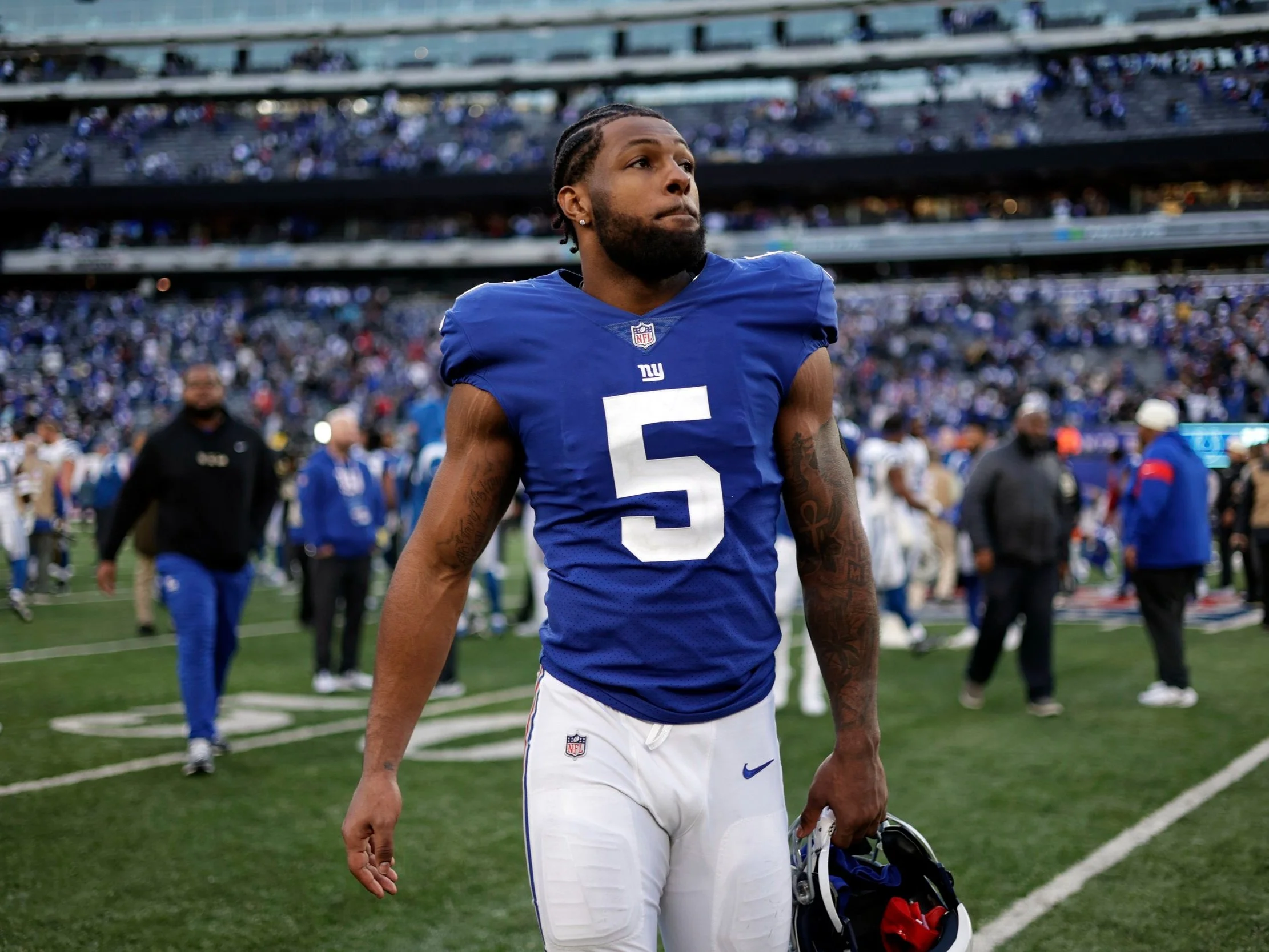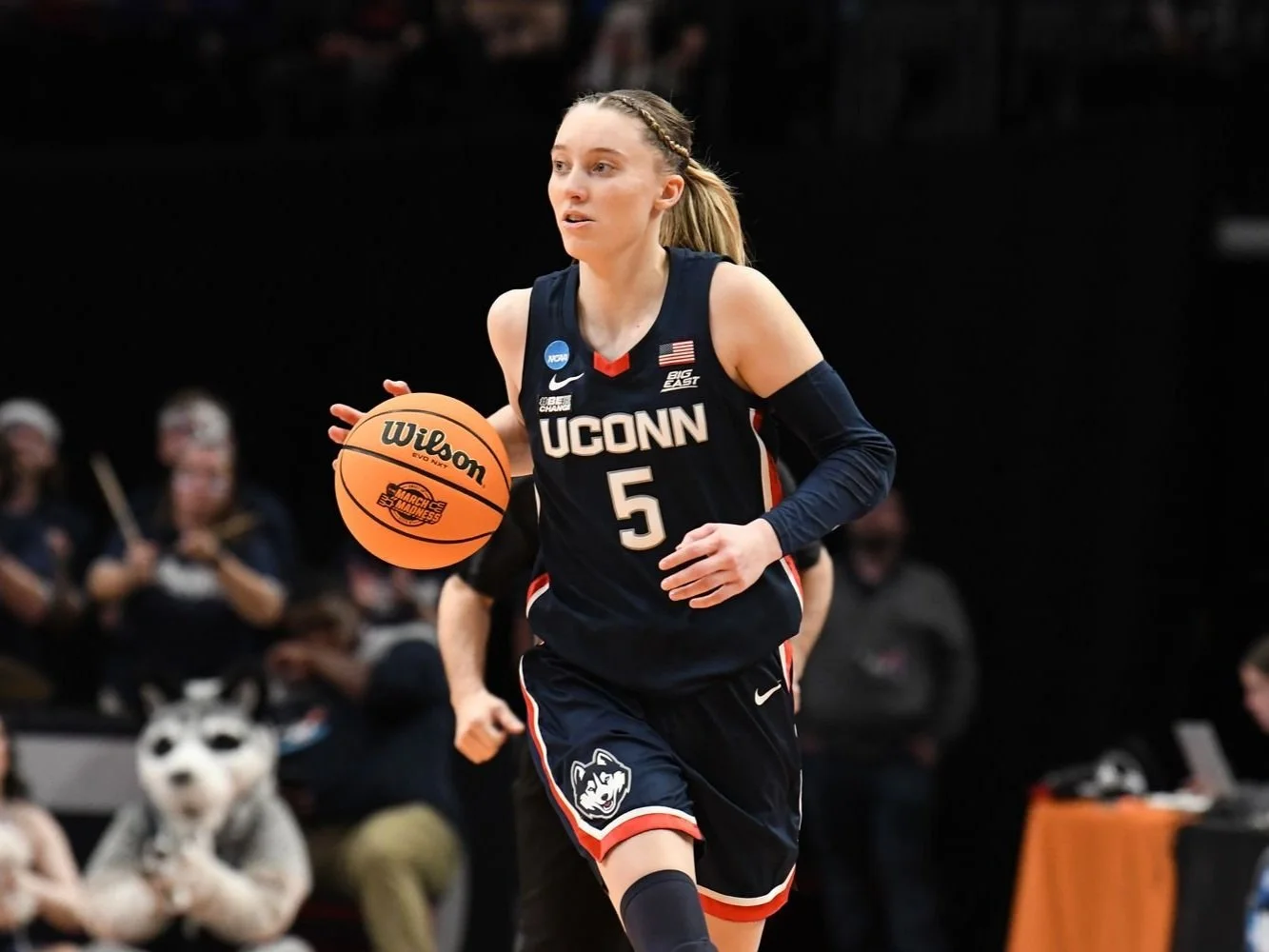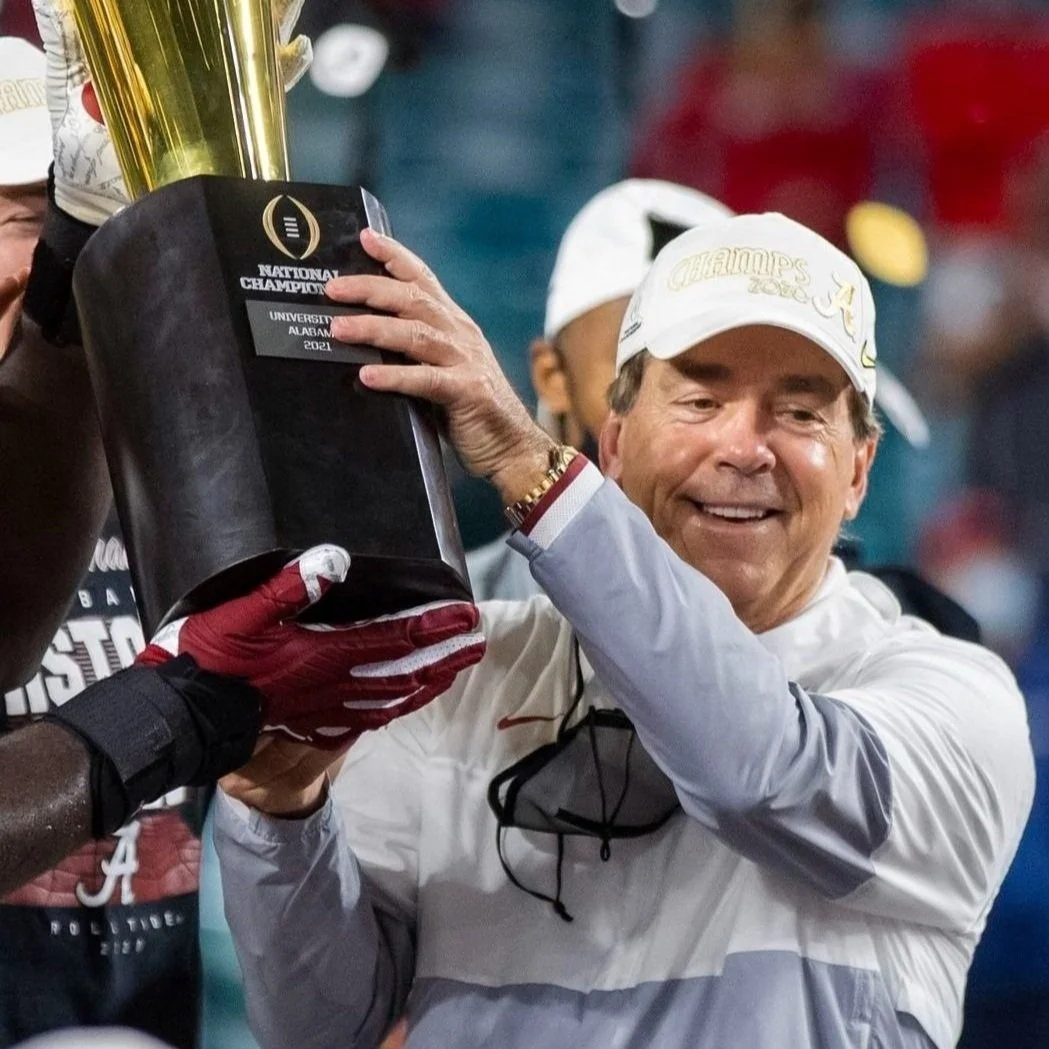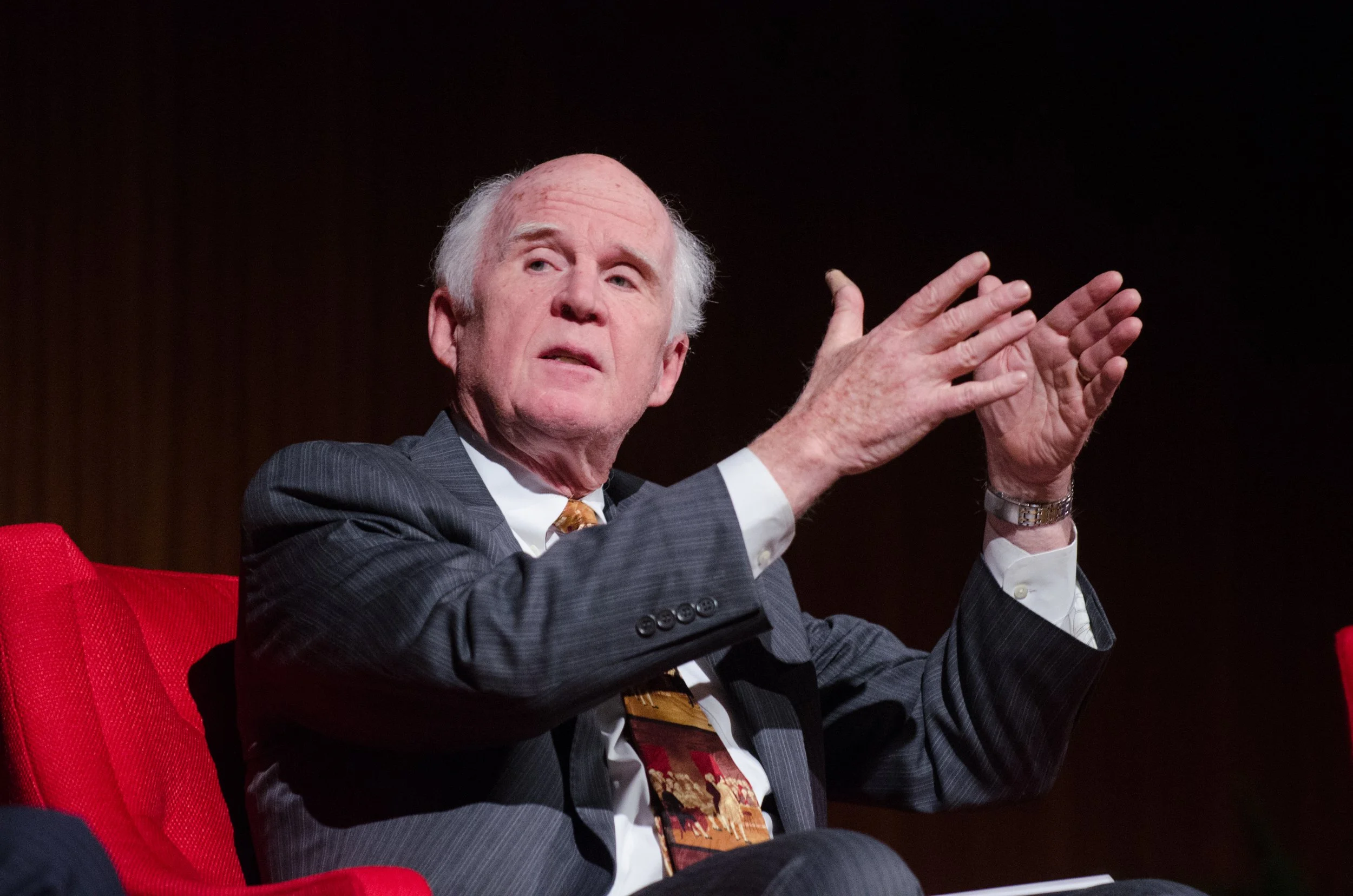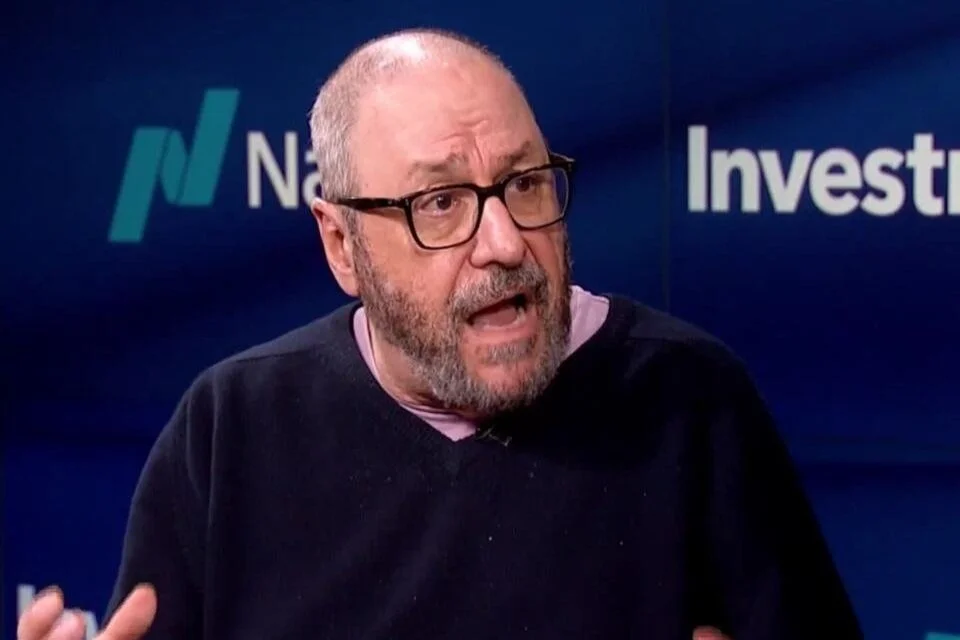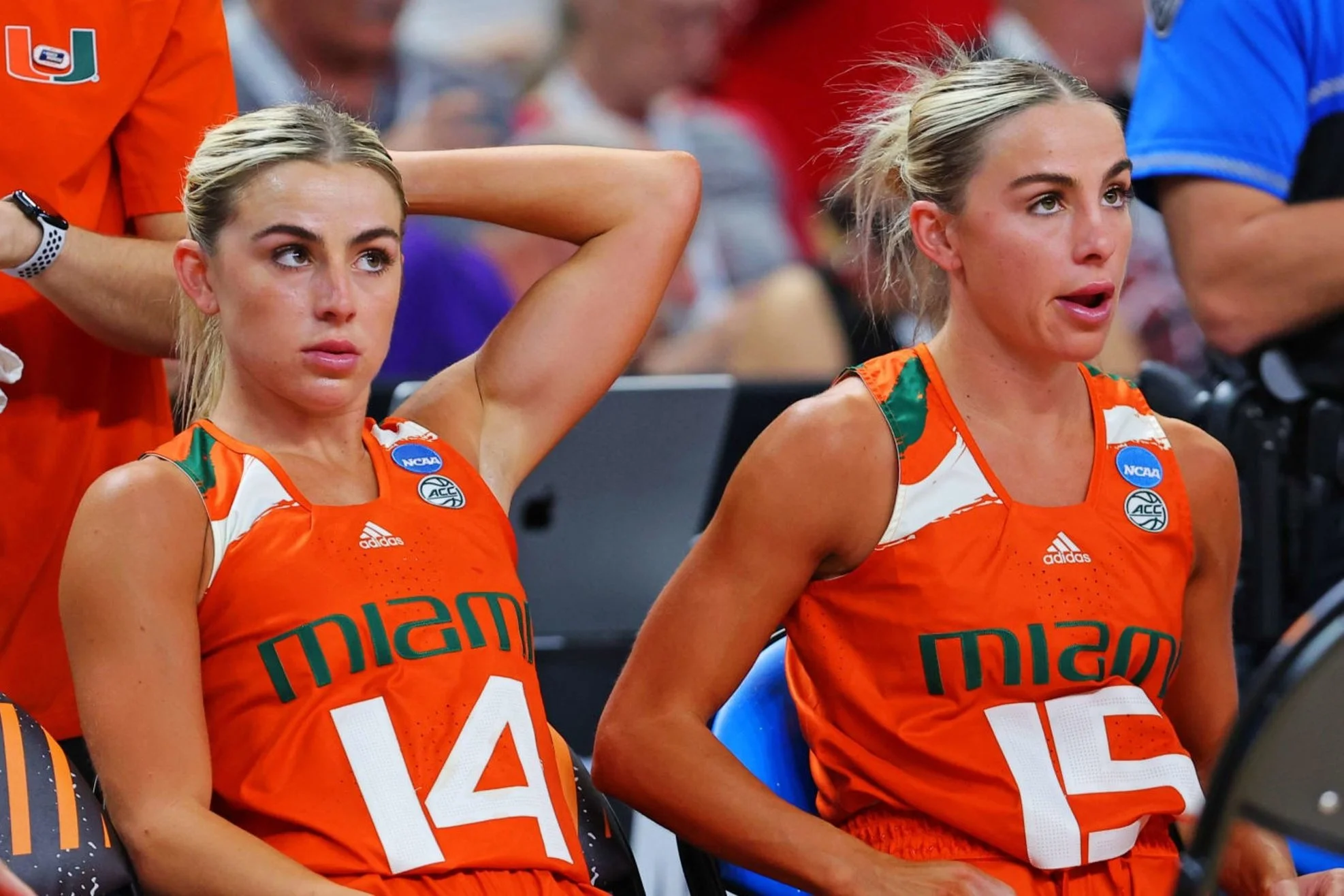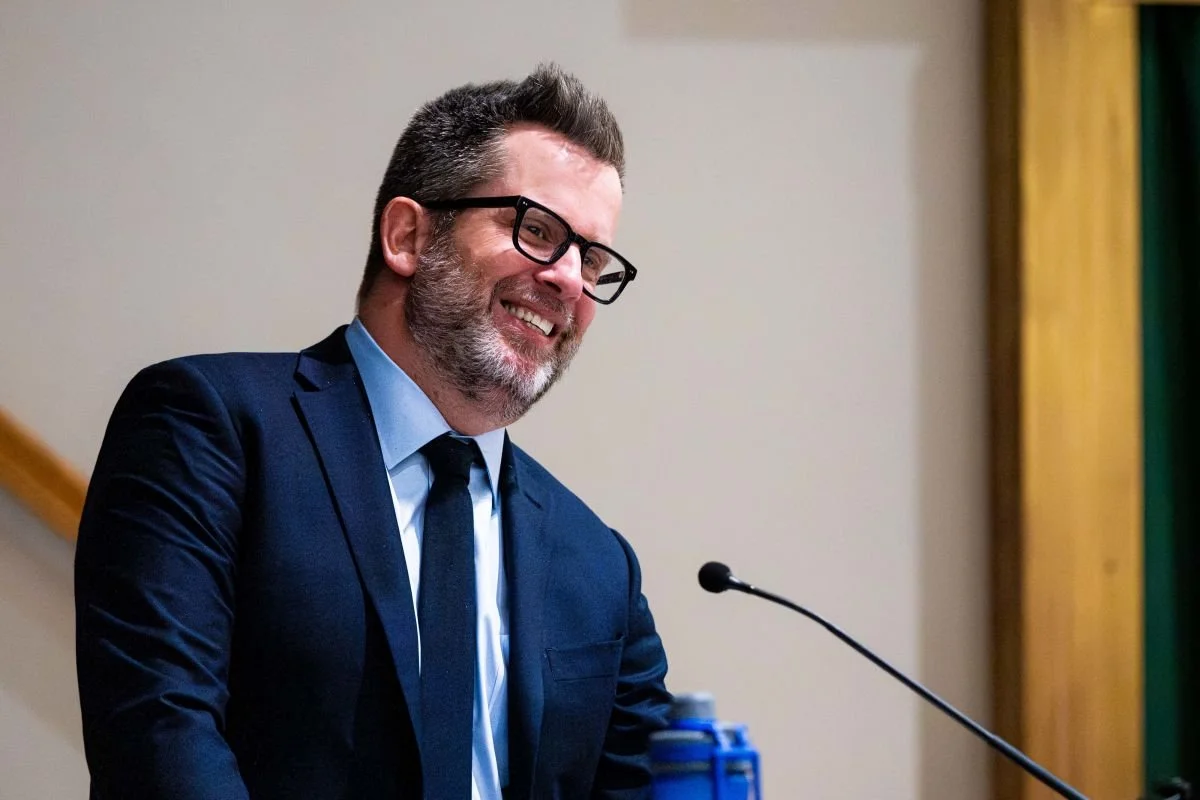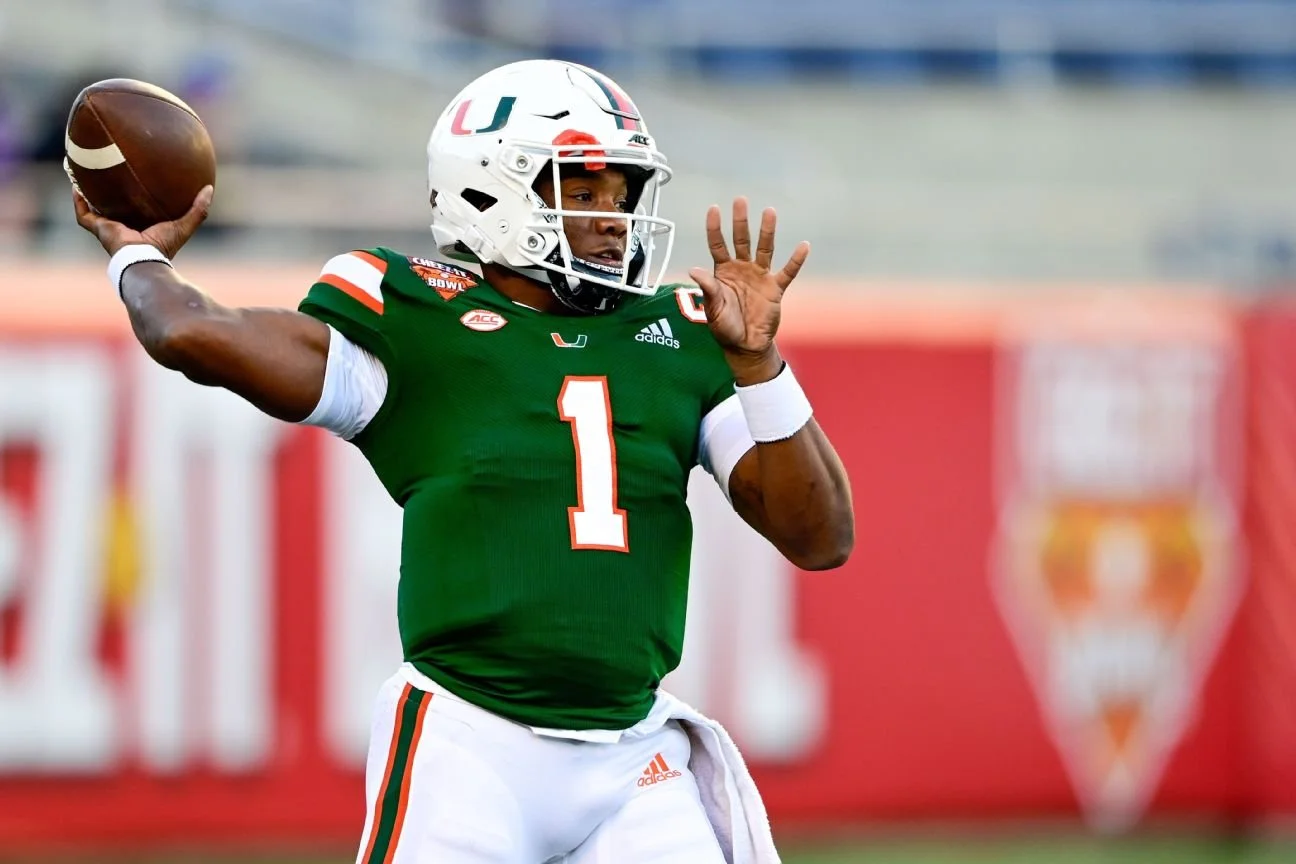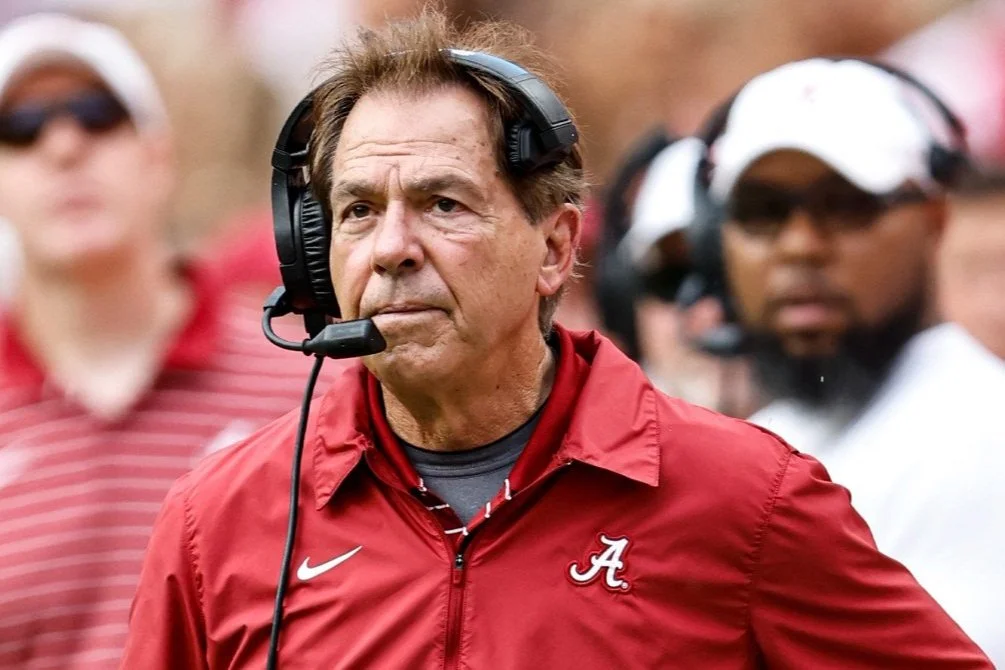What’s in a Name?
Is NIL a big deal? Well it got Nick Saban to quit coaching.
Exploring the significant impact of NIL policies in college sports, highlighting how student-athletes are navigating newfound financial freedoms while confronting the challenges and future implications of this groundbreaking shift in the collegiate athletic landscape
ABOUT
Taylor Branch
"What's in a Name?" is a groundbreaking documentary series that delves into the transformative impact of Name, Image, and Likeness (NIL) policies on college sports. The series explores the historical context of NCAA regulations, highlighting the landmark Supreme Court case NCAA v. Alston, which challenged the restrictions on education-related benefits for student-athletes. Featuring insights from influential voices like Taylor Branch, Joe Nocera, and Ben Strauss, the documentary examines the evolving landscape of college athletics, the rise of athlete rights, and the burgeoning market for athlete endorsements.
Through personal stories, "What's in a Name?" showcases how prominent athletes like D'Eriq King, Haley and Hanna Cavinder, and Olivia Dunne navigate the new NIL opportunities, balancing their sports careers with brand-building endeavors. The series also addresses dissenting opinions and the complexities of this shift, considering the broader implications for college sports' future. With interviews from key figures like Nick Saban, the documentary provides a comprehensive look at the revolution in athlete compensation and its far-reaching effects on the collegiate sports ecosystem.
“Players are nothing more than unpaid labor force, and the NCAA is nothing more than an economic cartel [...]ensure players have no money, no power, no rights to do anything outside the parameters of what they are told to do[...]” - Joe Nocera (Journalist/Author)
The NCAA has long maintained that student-athletes cannot be compensated in the name of "amateurism” which gives them a character and differentiating factor.
PROFESSIONALS IN THE FIELD
“That’s my major concern, the combination of pay for play, free agency and how that impacts development [...] players come to them less developed, with more entitlement, and less resilience to overcome adversity [...] each time you transfer you minimize your chances of graduating[...] we created and environment that doesn't promote personal development or that's going to create success for their future.” - Nick Saban (American sport commentator)
SUBJECTS
American author and historian.
Bryce Young
Joe Nocera
Joe Nocera is business journalist in The New York Times. He has referred to the harsh and unfair conditions suffered by collage athletes.
ATHLETES
The Cavinder twins, who play basketball at Fresno State, quickly became NIL stars due to their social media presence. They signed deals with Boost Mobile, WWE, and several other brands, utilizing their combined following of over 4 million on TikTok to secure sponsorships worth over $1 million.
Before his first game as Alabama's starting quarterback, Bryce Young had reportedly amassed close to $1 million in NIL deals. Young signed with companies such as Cash App, and his status as a top college quarterback helped him secure lucrative endorsements early in his collegiate career.
Kayvon Thibodeaux
Sunisa Lee
Jason Gay is a well-known sport columnist at the Wall Street Journal.
Ben Strauss
Jason Gay
Ben Strauss is a sport and media reporter, who covers sports for the Washington posts. Has also worked for the Politico and New York Times.
Before heading to the NFL, Kayvon Thibodeaux, a star defensive end at Oregon, signed a notable deal with United Airlines and launched his cryptocurrency through a partnership with a blockchain company. His entrepreneurial spirit and prowess on the field made him a unique figure in the NIL landscape.
After her success as a gymnast in the Tokyo Olympic 2020, Olympic gold medalist Sunisa Lee took advantage of the NIL rule. Upon joining Auburn University, she signed several endorsement deals, including Gatorade, which helped her capitalize on her Olympic fame while competing at the collegiate level.
Olivia Dunne
Olivia Dunne, an LSU gymnast, is one of the highest earners under the NIL rule. Due to her massive influence on platforms like Instagram and TikTok, she has signed deals with brands like Vuori, a performance apparel company, and even appeared in a Sports Illustrated swimsuit edition
D'Eriq King
Miami quarterback D'Eriq King was one of the first athletes to announce several NIL deals, including with College Hunks Hauling Junk, Murphy Auto Group, and The Wharf Miami. King also co-founded Dreamfield, a platform that helps athletes monetize their NIL rights through booking events and appearances.
Nick Saban
Saban is a former professional college football coach and sportscaster. Has been open about his opinion towards the NIL, supporting new rules and change for athletes, but concerned about the negative effect on the system and college athletes development.
NIL and the NCAA timeline
In 1948, the NCAA introduced the "Sanity Code", allowing only athletes with proven financial need to receive scholarships and jobs. However, due to controversy, it was rescinded in 1951.
In 2014, Ed O'Bannon, a former UCLA basketball player, sued the NCAA for not compensating athletes for the commercial use of their likenesses, marking the beginning of the push for NIL (Name, Image, and Likeness) rights. The case highlighted the NCAA's antitrust law violations.
In 2019, California passed the "Fair Pay to Play" Act, becoming the first state to allow athletes to profit from their NIL, prompting other states to consider similar legislation.
The 2021 NCAA v. Alston case further challenged the NCAA's restrictions, with the Supreme Court ruling that these restrictions violated antitrust laws. This led the NCAA to adopt an interim NIL policy, allowing athletes to engage in NIL activities without facing sanctions.
Finally, in 2024, the NCAA and major college conferences reached a settlement in the House v. NCAA class action lawsuit, proposing two main components: $2.7 billion in compensation for athletes who competed before 2021 and a future revenue-sharing model allowing colleges to distribute around $20 million annually to athletes. This settlement, pending approval, aims to end "amateurism" in college sports and address the competitive disadvantages among schools regarding athlete compensation.

